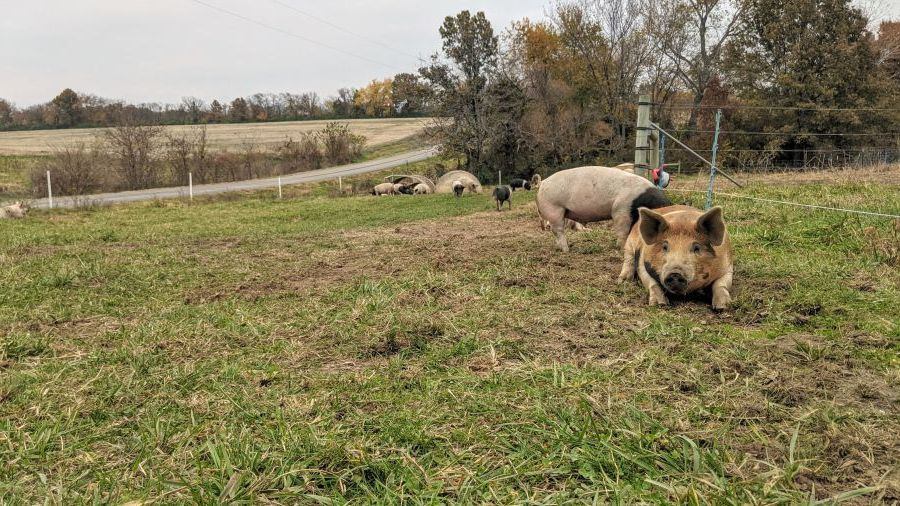The Mud Spa: Why Pigs Love to Wallow
posted on
April 25, 2024

Ever seen pigs having a blast in the mud? It might seem messy or excessive, but there's more to it than meets the eye. Pigs are onto something with their love for wallowing—it's not only natural, but super important for their health and happiness. Let me explain why in simple terms.
1. Keeping Cool:
Pigs don't sweat like we do, so they need other ways to keep cool when it's hot out. Wallowing in mud is like their personal air conditioner. As the mud dries on their skin, it cools them down. Plus, the wet mud helps them transfer heat, so they stay cool and comfy even on scorching days.
2. Staying Safe:
Mud isn't just fun; it's protective too! It shields the pigs from the sun's harsh rays, preventing sunburns and skin problems. Rolling around in the mud also helps them get rid of annoying bugs like ticks and mites, keeping them healthy and happy.
3. Hanging Out:
Imagine a pig party in a mud pit—that's what wallowing is like! Pigs gather to play, bond, and relax together. It's their way of chilling out and having fun with friends. Here is a photo I caught recently of the whole group having a swim party when I gave them access to one of our farm ponds.

4. Skin Care:
Believe it or not, mud is good for the skin! It helps pigs shed dead skin cells and keeps their skin healthy. Mud also has special minerals that fight off germs, so pigs stay clean and comfy.
Why Wallowing Has Gotten A Bad Rap
Trying to keep pigs out of mud is like trying to keep a toddler out of the candy jar! They will fight you for it. So if there's mud nearby you can bet they are spending time in it. The issue is that not all mud is created equal; some pigs are left to wallow in things they shouldn't.
Pigs raised in confinement like to wallow just as much as those raised on pasture, but the only mud they have to wallow in is their own manure. This is extremely unhealthy for them and the leading cause of health issues in confinement pigs. Pigs raised outdoors but not moved regularly or given deep bedding run into the same issue.
This is why we don't just raise our pigs outdoors—we move them regularly so that they are not forced to wallow in their manure, and when we can't move them in the winter we give them straw bedding. The bedding helps keep them clean and adds carbon to the paddock, aiding in the breakdown of the manure into compost.
Conclusion:
So, the next time you see pigs having a blast in the mud, remember—it's not just messy fun. Wallowing is their way of staying cool, safe, and happy. By giving pigs space to wallow, we're helping them live their best lives. After all, everyone deserves a little mud spa day now and then!
I hope you now have a better understanding of why pigs enjoy mud. If you have any more questions about pigs feel free to comment below!
Your farmer,
Remi Kesten



